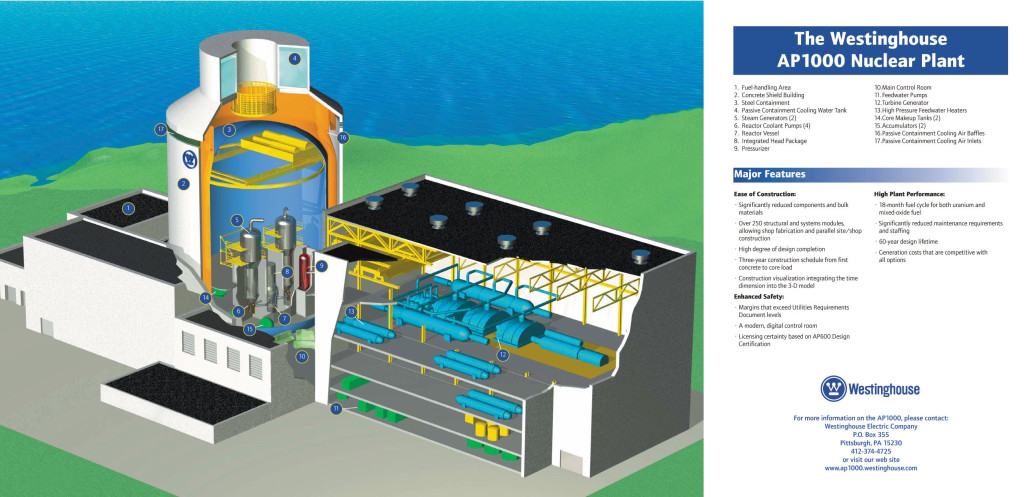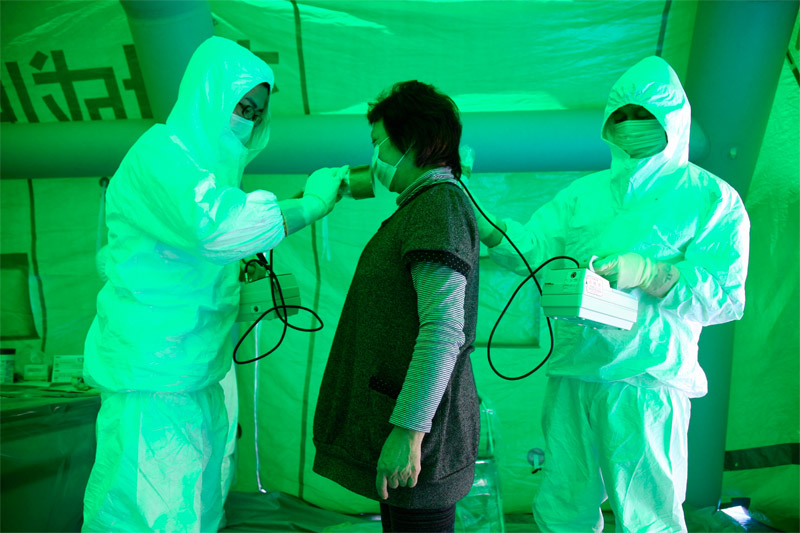NRC Licenses First New Nuclear Reactors in Decades

February 10, 2012
Share
The Nuclear Regulatory Commission approved two new reactors yesterday, paving the way for new nuclear technology amidst concerns over an aging U.S. fleet.
But the approval, after a 4-1 vote by the NRC, is not without a touch of controversy. NRC Chair Gregory Jaczko was the one dissenting vote, citing concerns about post-Fukushima safety.
The two reactors, both in Georgia at the current site of the Vogtle Electric Generating Plant, will be the first built since 1978; currently, about half of U.S. nuclear reactors are more than 30 years old. And the type of plant, the Westinghouse AP1000, is a new design set to withstand “earthquakes and plane crashes and to be less vulnerable to a cutoff of electricity, which set off the triple meltdown at Fukushima in 2011.” China is also building AP1000s, the first of which expected to go online in 2013.
While Southern Nuclear Operating Co. President Thomas Fanning called the vote a “monumental accomplishment” (Southern owns Votgle), Chairman Jaczko voiced his reservations about building new plants before any post-Fukushima safety changes have been made to existing ones.
“Right now we know there are things that need to be fixed, things that need to be changed, or at least things that need to be analyzed,” Jaczko told Bloomberg. “For us to issue this license, and say ‘we’ll deal with them later,’ to me is kind of putting the cart before the horse.”
For example, 27 reactors don’t meet seismic guidelines set by the NRC in the ’90s. There are also risks related to fire and equipment failures that critics, like the Union of Concerned Scientists’ David Lochbaum, say are being handled inconsistently by the NRC.
For more on these issues, watch our recent film Nuclear Aftershocks, which looks at the implications of the Fukushima disaster on U.S. nuclear safety.
Related Documentaries
Latest Documentaries
Related Stories
Related Stories
Explore
Policies
Teacher Center
Funding for FRONTLINE is provided through the support of PBS viewers and by the Corporation for Public Broadcasting, with major support from Ford Foundation. Additional funding is provided the Abrams Foundation, Park Foundation, John D. and Catherine T. MacArthur Foundation, Heising-Simons Foundation, and the FRONTLINE Trust, with major support from Jon and Jo Ann Hagler on behalf of the Jon L. Hagler Foundation, and additional support from Koo and Patricia Yuen. FRONTLINE is a registered trademark of WGBH Educational Foundation. Web Site Copyright ©1995-2025 WGBH Educational Foundation. PBS is a 501(c)(3) not-for-profit organization.




















